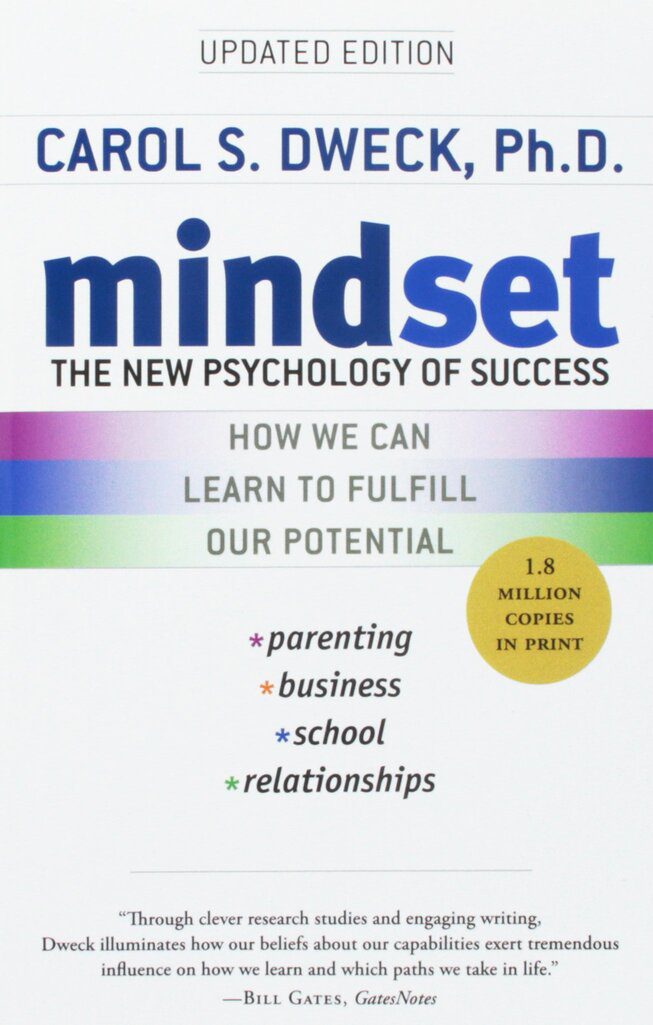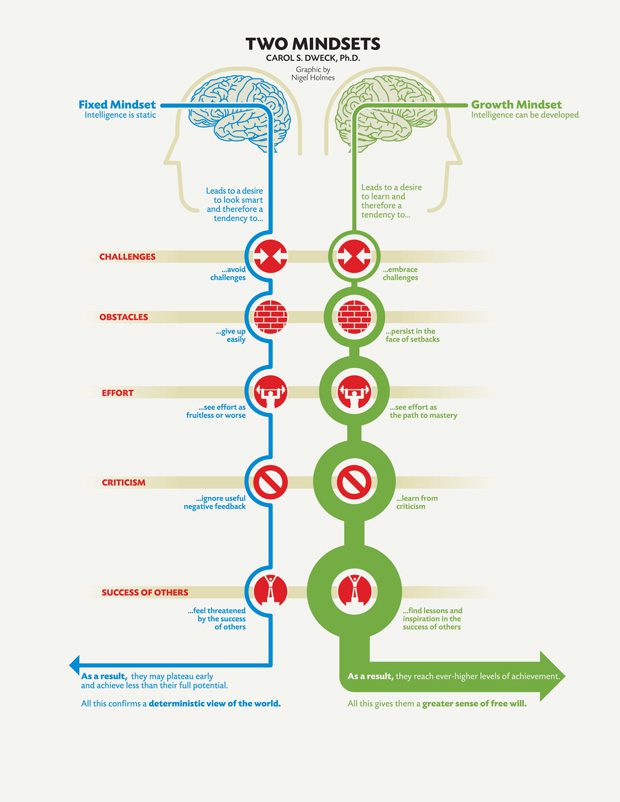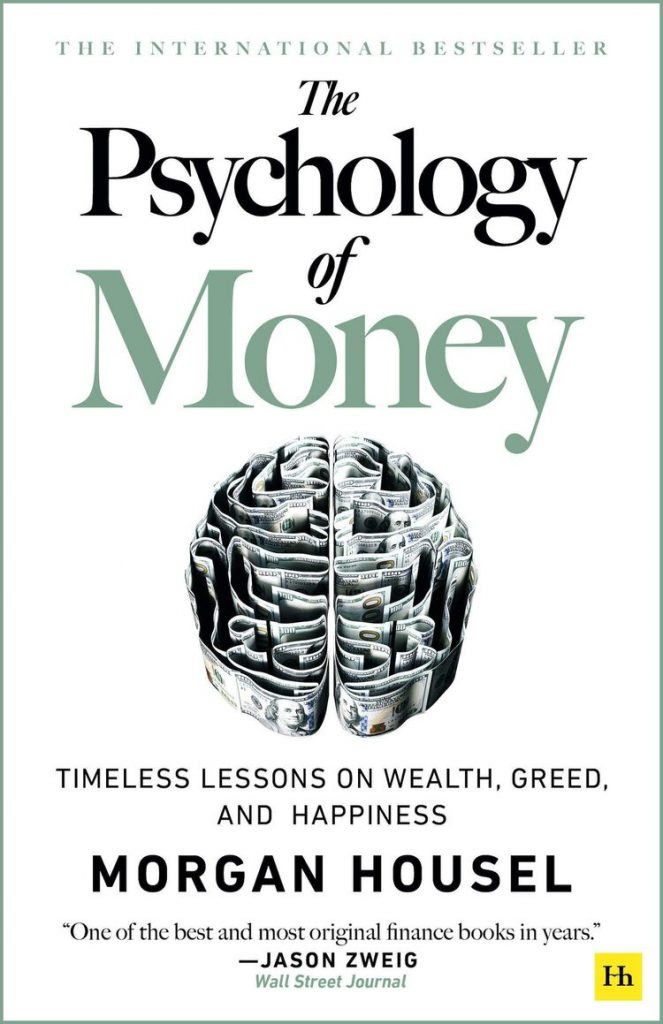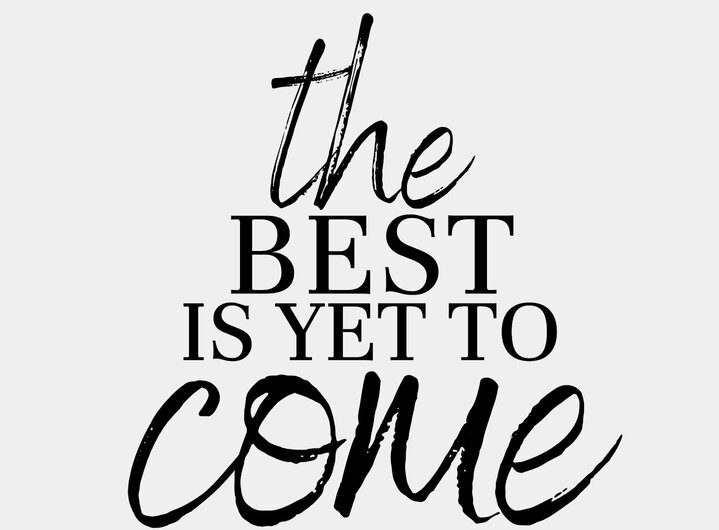We are all works in progress but we often underestimate our progress and overestimate what we are going to become in the future. It is a tendency that we humans exhibit and psychologists refer to as the “end of history illusion”. One of the keys to getting ahead in life is to understand that you can always become a better version of yourself and the best is yet to come. Your history is not your destiny, you can change the course of your life at any point by deciding to change the direction you are heading. As American philosopher and psychologist, William James once said “The greatest discovery of our generation is that human beings can alter their lives by altering their attitudes of mind. As you think, so shall you be.” Good better best, never let it rest until good is better and better is best.
“The greatest discovery of our generation is that human beings can alter their lives by altering their attitudes of mind. As you think, so shall you be.” – William James
According to American Social Psychologist and Harvard Professor Dan Gilbert, research shows that we humans tend to exhibit a phenomenon known as the “end of history illusion,” where we somehow imagine that the person we are right now is the person we’ll be for the rest of time.
“Human beings are works in progress that mistakenly think they’re finished.”
In his 2014 TED Talk: The Psychology of Your Future Self, Gilbert observed:
All of us are walking around with an illusion—an illusion that history, our personal history, has just come to an end, that we have just recently become the people that we were always meant to be and will be for the rest of our lives.
The question is, as a psychologist, that fascinates me is, why do we make decisions that our future selves so often regret?
At every stage of our lives, we make decisions that will profoundly influence the lives of the people we’re going to become, and then when we become those people, we’re not always thrilled with the decisions we made. So young people pay good money to get tattoos removed that teenagers paid good money to get. Middle-aged people rushed to divorce people who young adults rushed to marry. Older adults work hard to lose what middle-aged adults worked hard to gain. On and on and on.
The bottom line is, time is a powerful force. It transforms our preferences. It reshapes our values. It alters our personalities. We seem to appreciate this fact, but only in retrospect. Only when we look backwards do we realize how much change happens in a decade. It’s as if, for most of us, the present is a magic time. It’s a watershed on the timeline. It’s the moment at which we finally become ourselves.
Human beings are works in progress that mistakenly think they’re finished. The person you are right now is as transient, as fleeting, and as temporary as all the people you’ve ever been. The one constant in our life is change.
The End of History Illusion is an example of a fixed mindset. According to author and Stanford Professor of Psychology Carol S. Dweck, we can either have a fixed mindset or a growth mindset. People with a fixed mindset believe that their qualities are carved in stone while people with a growth mindset believe that they are a work in progress and hence they are always stretching and striving to become a better version of themselves.

As Stanford University psychologist Carol Dweck noted in her very illuminating book, Mindset: The New Psychology of Success, 1 there are two types of mindset: Fixed and Growth Mindset. People with a growth mindset strive to become a better version of themselves, and they believe that with effort and continuous improvement, they will become successful. People with a fixed mindset believe that their qualities are carved in stone, which creates an urgency to prove themselves repeatedly.

Fixed Mindset
Believing that your qualities are carved in stone—the fixed mindset— creates an urgency to prove yourself over and over. If you have only a certain amount of intelligence, a certain personality, and a certain moral character—well, then you’d better prove that you have a healthy dose of them. It simply wouldn’t do to look or feel deficient in these most basic characteristics.
The Growth Mindset
There’s another mindset in which these traits are not simply a hand you’re dealt and have to live with, always trying to convince yourself and others that you have a royal flush when you’re secretly worried it’s a pair of tens. In this mindset, the hand you’re dealt is just the starting point for development.
This growth mindset is based on the belief that your basic qualities are things you can cultivate through your efforts, your strategies, and help from others. Although people may differ in every which way—in their initial talents and aptitudes, interests, or temperaments—everyone can change and grow through application and experience.
The passion for stretching yourself and sticking to it, even (or especially) when it’s not going well, is the hallmark of the growth mindset. This is the mindset that allows people to thrive during some of the most challenging times in their lives.

The End of History Illusion 2 is what psychologists call the tendency for people to be keenly aware of how much they’ve changed in the past, but to underestimate how much their personalities, desires, and goals are likely to change in the future.
Long-term financial planning is essential. But things change—both the world around you, and your own goals and desires. It is one thing to say, “We don’t know what the future holds.” It’s another to admit that you, yourself, don’t know today what you will even want in the future. And the truth is, few of us do. It’s hard to make enduring long-term decisions when your view of what you’ll want in the future is likely to shift.
Meditation
- Daily Calm with Tamara Levitt – Phone Meditation
- Thich Nhat Hanh: When you hear your phone ring, don’t answer, pause and sit with it. Allow your awareness to stay with the sound of the phone as it rings. Listen to the ringtone without judging it, to be good or bad. Next, Look at the caller ID, notice the emotional response that it stares, scan your body and notice the sensations, and be present as the phone call comes and goes.
- Mindfulness means moment-to-moment non-judgmental awareness. It is cultivated by refining our capacity to pay attention intentionally in the present moment. And then sustaining that attention over time as best as we can. In the process, we become more in touch with our life as it is unfolding.
“Drink your tea slowly and reverently, as if it is the axis on which the world earth revolves – slowly, evenly, without rushing toward the future.”― Thich Nhat Hanh
- Daily Jay with Jay Shetty – The Third Door.
- There is always another way when you adopt the third door mentality, you have a much better shot of actualizing your goals. We get so attached to our vision of how things have to be done that we limit our chances of success. Sometimes the third door is your best way in.
- Daily Trip with Jeff Warren – Getting Ahead of Yourself
- Our forward-thinking is an evolutionary superpower and one of the wonders of nature. Meditation, to be present is to slip down between this moment and the next, between this thought and the next. The long game of meditation is training yourself to stay connected exactly to this understanding.
All the Best in your quest to get better. Don’t Settle: Live with Passion.



Comments are closed.